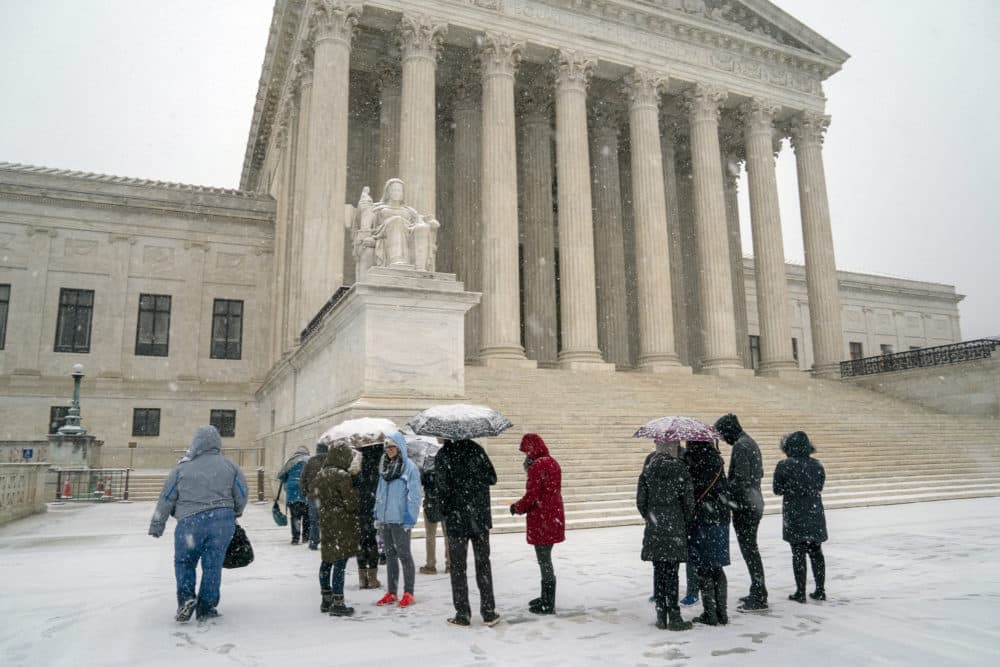Advertisement
After New Supreme Court Ruling, Looking At The Practice Of Civil Forfeiture

The Supreme Court ruled on Thursday there are constitutional limits to whether state and local governments can seize cash and property suspected of being involved in crimes. It is a practice called civil asset forfeiture, and in many cases, suspects are not charged with crimes despite their property being seized.
Here & Now's Jeremy Hobson speaks with Louis Rulli, professor at the University of Pennsylvania law school.
This segment aired on February 22, 2019.